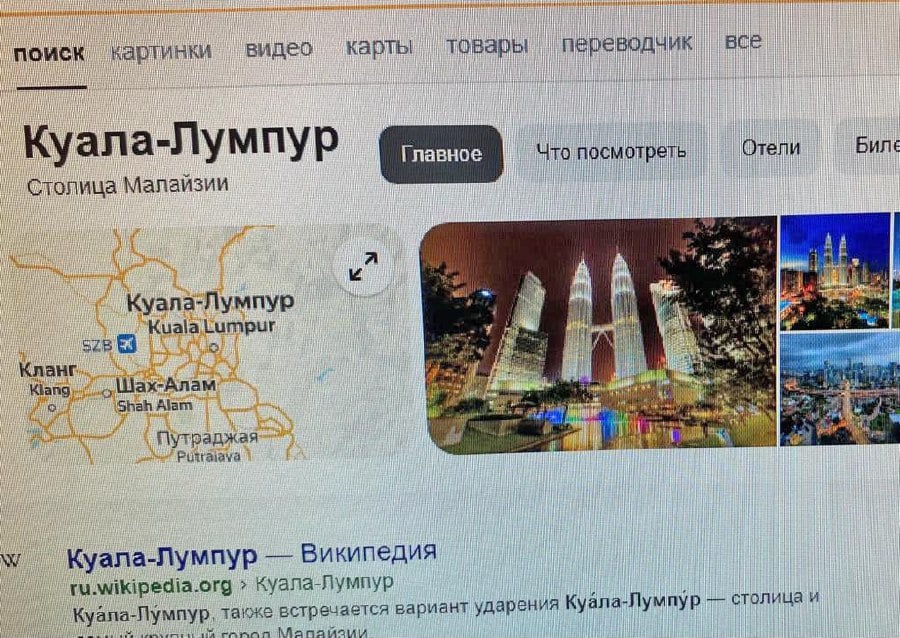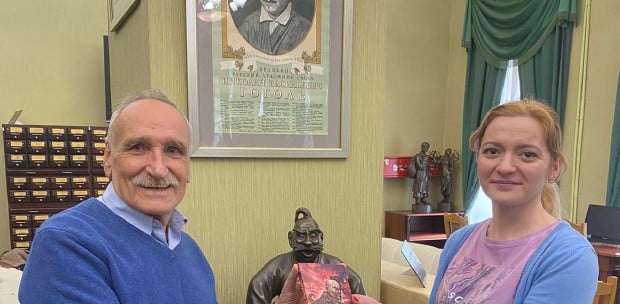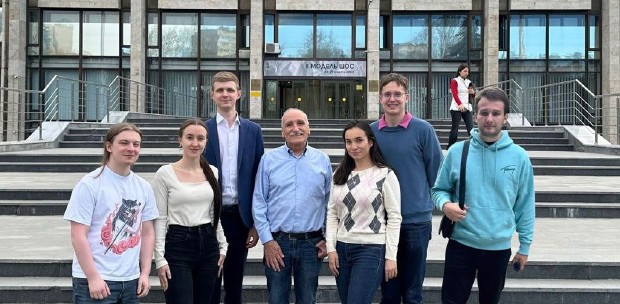I recently found out that many Malay words are on Russian web pages. Previously, one may only find the word "Melayu" or "orangutan" or cultural words such as "keris" and "batik", now there are dozens.
"Orangutan" has been known for a long time in Russian. Though wrong, it has a well-established translation — forest man.
Surprisingly, a very popular Malay word on the Russian Internet was "matahari" which was found in connection with materials about the famous female dancer and adventurer (they say she was also a secret agent) Margaret Gertruda Macleod (1876-1917), better known by the pseudonym Mata Hari.
Interest in the woman seems to have become stronger in recent times so this Malay word is found more often.
The development of tourism and the emergence of many travel agencies trying to attract Russians to visit Malaysia resulted in more Malay toponyms — previously almost unknown — now being used.
According to Russian Internet materials, the island of Langkawi and the interesting places there are becoming very popular. Because many toponyms are related to interesting stories, the toponyms are usually translated.
The toponym with the name of the capital of Malaysia "Kuala Lumpur" is mentioned in various contexts and practically always with a translation or further explanation of the place. The translation of the city's name was well established and did not cause any difficulties for the writers.
We found on the Russian Internet other toponyms such as the names of several islands — Perhentian, Pangkor, Tioman or Pulau Pinang — and the name of the city of Kuching with the translation "cat".
The etymology of the word "Kuching" as Sarawak's capital is debatable but the people there like to support the "cat" version because it sounds exotic, attracts tourists and provides opportunities to earn income through various souvenirs — cat necklaces, cat statues and pictures, etc.
In the city itself, there are several large statues of this domestic animal.
Several Russian web pages also drew the attention of Internet users to Malaysia's national car "Proton" with abbreviation expansion — Perusahaan Otomobil Nasional Berhad.
Further, the different Proton models — Proton Saga, Proton Wira, Proton Satria, Proton Tiara and Proton Perdana — are mentioned. As for the last one, one joke says if a Malay calls his woman by the name "perdana", this is not a bad thing, he is saying — you are the best.
The humour is probably out of place because no one in Malaysia calls their woman "perdana".
Meanwhile, the relatively old word "amok" is still used mainly because of the popularity of Stefan Zweig's short story in 1922.
There are also some examples of literary works where the linguonym "Malay" is found. It should be noted that often the linguonym is used with the meaning of something mysterious.
For example, in the short story 'Ball Lightning from Jinnistan' by the humourist Andrey Vishnevsky, it is narrated:
"Larry Bach once wrote me a letter in Malay. I'm not good at reading in Malay... I said earlier as if I was writing or speaking in Malay... Larry doesn't know Malay either. But when I receive a letter in Malay I am always happy — I know that it was written by Larry."
It is not certain but possible that Vishnevsky used "Malay" because we together one day participated in the commemoration night of Alexander Dudoladov whose short story "There is no Tomorrow" in my translation was published in the "Dewan Sastera" in 1998.
Vishnevsky became host on the memorial night and when I told the story of the translation of the short story and read it in Malay, the audience laughed as they found the sound of Malay as quite funny.
In the children's novel "Khayalan Barankin" by Valery Medvedev posted on the web page, the name of the traditional Malay game "sepak takraw" is mentioned. We can only admire the vast knowledge of the girl, the main character of the novel.
In summary, Malaysia in general and the Malay language in particular are becoming more familiar to Russian Internet users.
This is related both to the rapid development of relations between Russia and Malaysia, especially in the field of tourism, as well as to the vigorous development of the Internet itself.
Hopefully many more Malay toponyms and cultural words will eventually find a place in Russian guidebooks and dictionaries and thus the translation of those words will be corrected and modified as necessary.
The writer, writing from Russia, is a former lecturer at University of Malaya





